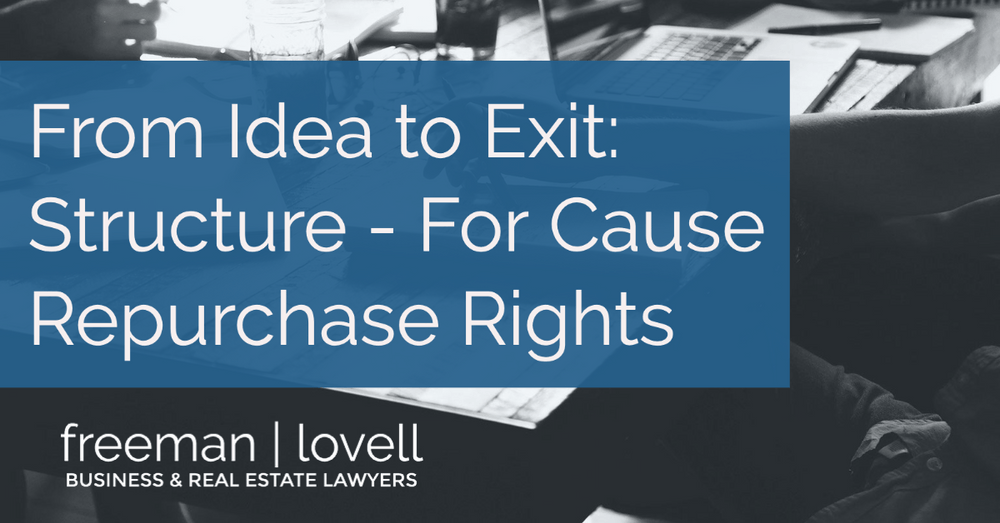
You know how hard it is to build a successful business. Our business lawyers want to make sure that entrepreneurs and small business owners have every advantage possible in making that happen.
A solid and secure legal foundation is a crucial component to doing so, and that is why your operating agreement or your bylaws are so critical to your business. In previous posts, we discussed methods of ensuring that your business can control your company’s equity in a way that allows the company to grow, develop, and reach its potential.
Considering this theme, a provision that we as business attorneys advise our clients to include in their operating agreements or bylaws is a for-cause repurchase right.
Protection from Bad Actions
For-cause repurchase rights protect the business when owners make actions that are not in the company’s company’s best interest. The for-cause repurchase rights allow the company to distance itself from that owner and purchase that owner’s equity back.
An example of an action that is not in the company’s best interest is if an owner of the business is convicted or engages in an activity that could lead to a conviction of a misdemeanor or felony-level criminal offense involving fraud, embezzlement, or dishonesty. By having this provision, the company can elect the right to repurchase that owner’s equity.
Another common trigger in a for-case repurchase clause is if there's a material breach that goes uncured of the operating or shareholder agreement or other agreement between an owner and the company. The threat of losing your equity creates an additional incentive for owners to comply with their contracts and obligations to the company.
Ability to Rebuy Equity
The idea is that if someone does something that materially hurts the company, then the company needs to be able to repurchase that bad actor’s equity. There is no room on the cap table for deadweight, and there is no reason that they should ever benefit further from you building your business.
We even regularly add a provision that allows for the company to buy the equity at a reduced rate, typically at about 50% of the fair market value of that owner’s equity. The percentage discount can change depending on how big of a disincentive they want to set for bad-actors. As a result, we regularly see the discount spanning between 20% and 80%.
As these are common aspects that go into a for-cause repurchase right, it's something that each company should carefully evaluate having in their operating agreement or bylaws.
The business attorneys at Freeman Lovell love assisting entrepreneurs and small-business owners understand, mitigate, and take the right legal risks in their operating agreements and bylaws.
Call or text us at (385) 217-5611 or send us a message through our , Contact Form .
You can also access all of our presentations on this section to learn more about how you can build your business and how we will clear the way for your success from idea to exit at this LINK .




